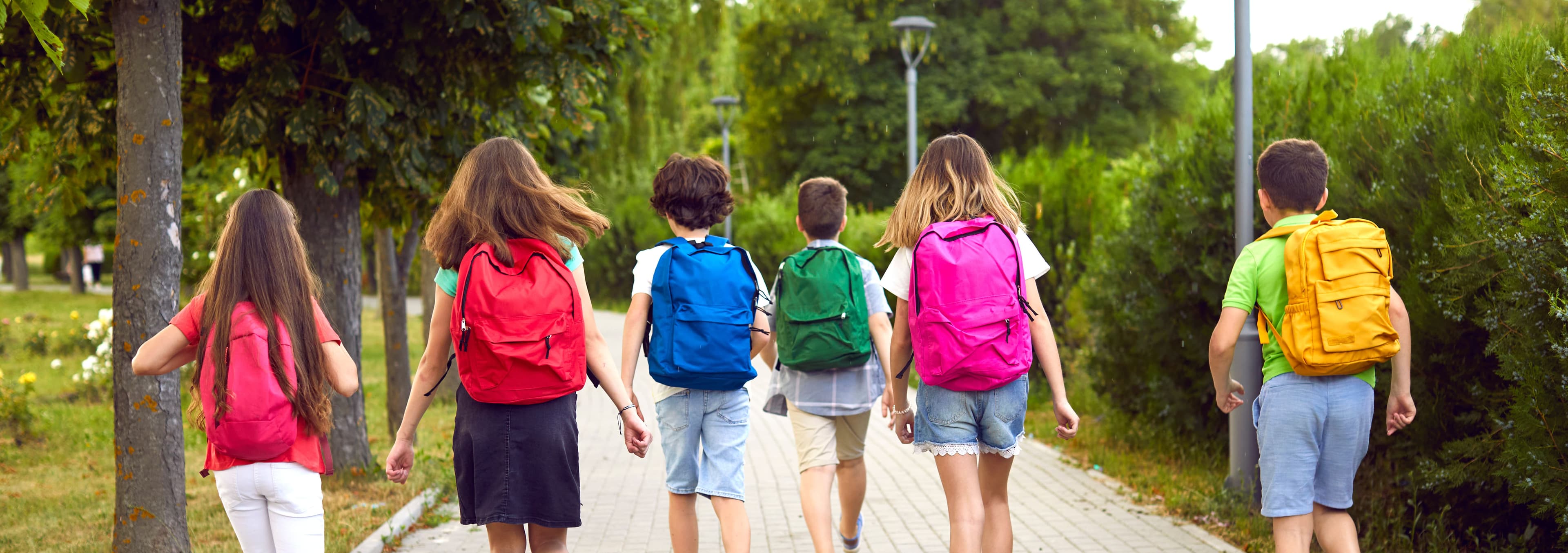Co zrobić z dzieckiem, które nie jedzie na wycieczkę?

Fraza: „Jedziemy na wycieczkę szkolną!” zazwyczaj wywołuje falę podekscytowania. W końcu każda lekcja odbywająca się poza murami szkoły to przerwa od rutyny, niespodzianka i przygoda. Ale czasem nie każde dziecko może wziąć udział. Może to być spowodowane chorobą lub skręceniem kostki dzień wcześniej, brakiem zgody rodziców lub opiekunów, kosztami wycieczki obciążającymi budżet rodzinny, czy obawą dziecka przed wyjazdem z różnych powodów. Co należy zrobić w takiej sytuacji?
Co zrobić z dzieckiem, które nie jedzie na wycieczkę?
Jeśli rezygnacja z wycieczki szkolnej wynika z choroby lub kontuzji, sytuacja jest stosunkowo prosta - dziecko zostaje w domu pod opieką rodziców. W przypadkach, gdy przyczyny nieuczestniczenia są inne (jak te wymienione powyżej), sytuacja wygląda następująco:
jeśli dziecko uczęszcza do przedszkola, dyrektor ma obowiązek zapewnić opiekę dzieciom, które nie biorą udziału w wycieczce. Choć niektóre placówki informują rodziców, że „wszyscy jadą, więc jeśli Twoje dziecko nie, powinno zostać w domu”, rodzice powinni wiedzieć, że jest to niezgodne z prawem i mogą żądać, aby zajęcia w przedszkolu odbywały się jak zwykle.
Jeśli chodzi o szkoły, wycieczki szkolne są traktowane jako lekcje terenowe, więc rodzice mają dwie opcje - mogą zdecydować się na pozostawienie dziecka w domu i napisanie usprawiedliwienia za nieobecność podczas wycieczki, lub mogą wysłać dziecko do szkoły, gdzie będzie uczestniczyć w zajęciach z inną klasą lub w innej formie zapewnionej przez dyrektora szkoły.
Co zrobić, gdy dziecko nie może jechać na wycieczkę?
Jeśli dziecko nie chce jeździć na wycieczki z powodu nieprzyjemnych doświadczeń z poprzednich wycieczek, problemów z rówieśnikami, lęku przed rozstaniem z rodzicami, czy innych obaw, o których nie chce mówić, warto zająć się problemem, a nie go zbywać, i spokojnie, bez zmuszania czy naciskania, spróbować zmienić jego zdanie. Warto porozmawiać z lekarzem i zastanowić się, czy istnieją alternatywne formy rekreacji, które nie zaszkodzą jego zdrowiu.
Istnieją sposoby, aby pomóc im pokonać poczucie samotności i izolacji. Po pierwsze, ważne jest porozmawianie z dzieckiem i zrozumienie, dlaczego nie chce lub nie może jechać na wycieczkę. Często wiąże się to z problemami finansowymi lub zdrowotnymi.
Jeśli brakuje środków, warto poszukać pomocy finansowej w szkole lub skontaktować się z fundacjami czy organizacjami, które pomagają dzieciom w trudnej sytuacji.
Organizacja alternatywnych atrakcji dla dziecka
Innym sposobem pomocy dziecku jest organizacja alternatywnych atrakcji podczas wycieczki. Można zaproponować wyjście do kina, do parku rozrywki lub zorganizować specjalny dzień zabawy w domu. Dzięki temu dziecko nie poczuje się izolowane i będzie miało własne, niepowtarzalne doświadczenia.
Nie zapominajmy o zapewnieniu dziecku wsparcia emocjonalnego. Warto spędzać z nim więcej czasu, rozmawiać o jego zainteresowaniach i robić coś wyjątkowego razem. Wyjazd weekendowy lub wizyta w muzeum mogą być doskonałym sposobem na stworzenie niezapomnianych wspomnień i przełamanie izolacji.
Podsumowując, brak uczestnictwa dziecka w wycieczce szkolnej nie musi oznaczać, że pozostanie ono samotne i izolowane. Warto szukać pomocy finansowej, organizować alternatywne formy rekreacji i zapewniać wsparcie emocjonalne. Dzięki temu dziecko poczuje się zintegrowane z grupą rówieśniczą i będzie miało swoje niezapomniane przygody.
Przeczytaj także:

